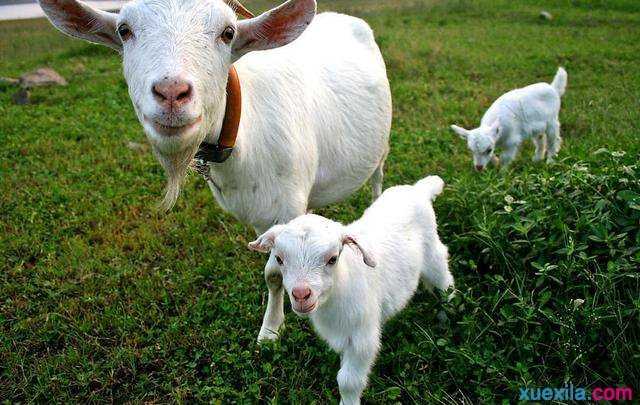与羊相关的英语典故
英语典故在帮助我们提高兴趣的同时,还能帮助我们认识单词,从而学习到更多的单词,下面小编给大家推荐英语典故,欢迎阅读:
英语中与羊相关的典故:
1. Separate the sheep from the goats
区分绵羊和山羊 辨别好人坏人(Divide things in two groups, those things that have value and those things that are less valuable / worthless)
成语出自《圣经马太福音》第25章。该章讲到,当救世主坐上他的宝座时,“万民都要聚集在他面前,他要把他们分别出来,好像牧羊的分别绵羊、山羊一般。”(And before him shall be gathered all nations: and he shall separate them one from the other, as a shepherd divideth his sheep from the goats.)他把绵羊(好人)置于右边,山羊(坏人)置于左边。右边的人将受到天父的祝福而永生,左边的人则会遭受炼狱的折磨。成语喻区分善恶和好坏,区分有用的和没用的东西。因此才有“the sheep and the goats 好人与坏人,sheep and goats 善人与恶人”的说法。

2. I had rather be a tick in a sheep than such a valiant ignorance.
我宁愿做羊身上的虱子,不愿做这种没有头脑的勇士。
语出莎士比亚悲喜剧《特洛伊罗斯与克瑞西达》(Troiles and Cressida)第三幕第三场战士Thersites的话。在特洛伊战争中,Ajax是个有勇无谋的将领,他答应同特洛伊主将Hector单独决斗,结果落入对方的圈套。Thersites见到Achilles谈到Ajax的鲁莽时说了这样一句话。人们也可以此讽喻那些没有头脑、没有主见的鲁莽的人。
3. Return to one's sheep;muttons
回到本题
这则习语的来源有两种:一种说法认为,它是直译法国田园诗中的一句:多情的牧羊男女在牧场上谈恋爱,海阔天空,但最终还是要回到现实,回到自己的羊群中来。这个成语就是“回到实际问题,言归正传”的意思。另一种说法:“Let us come back to our sheep.(回过头来谈我们的羊吧。)”仿自法语“Revenons nos moutons”,即Return to one's muttons。这是法国一位佚名作者创作的《巴特兰讼师的闹剧》中的一句话。法语中“羊”叫做mouton,英语中“羊”叫做 sheep。法语进入英语后,mouton演变成mutton。在英语中,mutton只指“羊肉”而不指“羊”,因为当时在英国的法国人是贵族,有钱吃得起“羊肉mutton”,而牧羊的盎格鲁撒克逊穷人就把“羊”称做sheep。久而久之,英语中就把“羊”称作sheep,而将“羊肉”叫做mutton。
4. A lost sheep
迷途的羔羊
出自《圣经马太福音》第18章。耶稣传道时曾用寻找迷途的羔羊的故事比喻上帝拯救有罪的人。“一个人若有一百只羊,一只走迷了路……他岂不撇下这九十九只,往山里去找那只迷路的羊吗?若是找着了,我实在告诉你们,他为这一只羊欢喜,比为那没有迷路的九十九只欢喜还大呢!”(...if a man have a hundred sheep, and one of them be gone stray, doth he not leave the ninety and nine, and goeth into the mountains, and seeketh that which is gone astray? And if so be that he find it, verily I say unto you, he rejoiceth more of that sheep, than of the ninety and nine which went not astray.)成语比喻误入迷途的人。